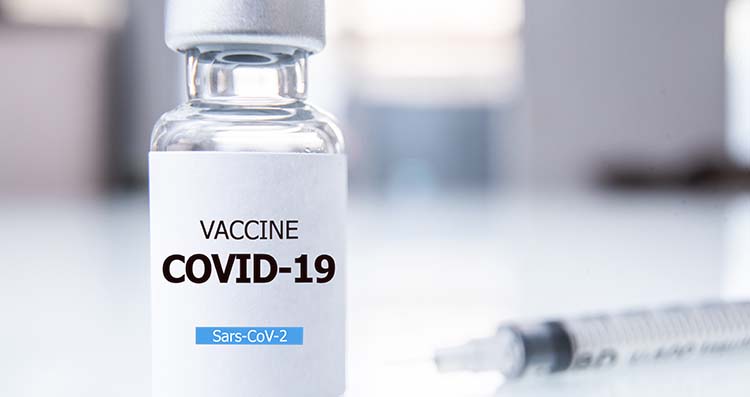3 misconceptions about vaccination and booster shots
The third jab or booster vaccination campaign is in full swing. However, sometimes, there is still uncertainty or doubt, even with vaccinated people, about the usefulness or necessity of this additional vaccination. Some misconceptions debunked.
'Corona vaccines do not work as expected.'
Wrong. It was not clear from the very start whether the current vaccines would prevent you from being infected or passing on the virus. Unfortunately, this is true to a limited extent. However, the vaccines protect strongly against hospitalisation and the serious consequences of the disease. The figures also show that it is mostly people who are not vaccinated or vaccinated people of advanced age or with underlying conditions who end up in hospital. Vaccination is and remains an important weapon in combating the coronavirus.

'A third jab is not necessary for everyone.'
Wrong again. The protective effect of vaccines decreases over time. So, an additional dose is important to remain sufficiently protected against serious illness. This is not an exception: other vaccines also require multiple doses or regular repetition.
The third jab is needed by more than just caregivers and high-risk individuals (the elderly, people with an underlying disease or reduced immunity, etc.). It is important that everyone gets vaccinated (again). Firstly, to protect yourself against serious illness or hospitalisation and also to work together to prevent spreading the virus as much as possible. In other words, you protect not just yourself but others as well. Moreover, the preventative measures that are now well known remain in place, even for those who have been vaccinated.
It is unclear at present how long the third jab will provide sufficient protection. Studies must still determine this, but a third dose of other vaccines have already been found to boost immune memory. This results in the number of antibodies decreasing more slowly over time after a third dose compared to just two jabs. We still do not know whether and how often repeat jabs will be required. It is possible older and vulnerable people will need regular vaccinations just as they do now against the flu.
When is it my turn?
You will be invited in the same way as in the first campaign. You will receive an invitation via the e-box and by post. The timing of the invitation depends on the type of vaccine you have already received. The booster is given at least 2 months after the basic vaccination in the case of Johnson & Johnson. For AstraZeneca, this is at least after 4 months and for Moderna and Pfizer after at least 6 months. At the request of the government, the High Health Council is looking into the possibility of an accelerated booster shot.

'A recent infection is equivalent to a vaccine dose.'
It is true that a prior infection generates a decent virus resistance for a period of time. How long and how strong this protection lasts is not yet clear. Initial data shows that this can vary greatly from one individual to another. This is why the booster vaccine is always recommended because it offers longer protection than natural immunity after infection. The booster vaccine is usually administered starting 14 days after recuperating from the coronavirus symptoms, or at least 14 days after a positive test when there were no symptoms.
What can an organisation do to maximally protect its staff?
The booster vaccination campaign is in full swing. In 2022, external services may be used to help speed up this process in the workplace. In practice, some pilot projects are already underway. However, in terms of current organisation, there is still a great deal of coordination underway with regional governments, vaccination centres, etc.
The most important things you can do in advance:
1. A key point: raise awareness among staff about the benefits of booster jabs. You can do that with this poster.
2. Continue to pay attention to known preventative measures, such as keeping your distance, washing your hands regularly, using face masks when necessary, etc.
3. Allow teleworking where possible.
4. Look after the mental wellbeing of all staff and show understanding for those who are struggling.